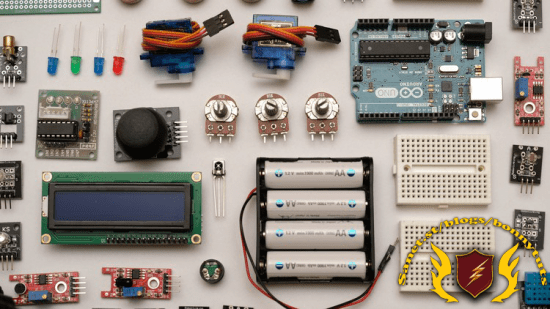
MP4 | Video: h264, 1280×720 | Audio: AAC, 44.1 KHz, 2 Ch
Genre: eLearning | Language: English + srt | Duration: 25 lectures (6h 45m) | Size: 5.14 GB
Introduction to Basic Electronics and Electrical Engineering
What you’ll learn
Students will learn basics of Electronics and Electrical Engineering
Requirements
Basics of Electronics and Electrical Engineering
Description
Electronics’ actual history began with the invention of vacuum diode by J.A. Fleming, in 1897; and, after that, a vacuum triode was implemented by Lee De Forest to amplify electrical signals. This led to the introduction of tetrode and pentode tubes that dominated the world until World War II. The main difference between electrical and electronic circuits is that electrical circuits have no decision making (processing) capability, whilst electronic circuits do. An electric circuit simply powers machines with electricity. … Most modern appliances use a combination of electronic and electrical circuitry. Electronics engineering is a branch of electrical engineering concerned with the uses of the electromagnetic spectrum and with the application of such electronic devices as integrated circuits and transistors. Electrical current, voltage, resistance, capacitance, and inductance are a few of the basic elements of electronics and radio. Apart from current, voltage, resistance, capacitance, and inductance, there are many other interesting elements to electronic technology.
When building electronic circuits, you will work with a number of basic electronic components, including resistors, capacitors, diodes, transistors, inductors, and integrated circuits.
What are the electronic components?
Microcontroller.
Transformer.
Battery.
Fuse.
Relays.
Switches.
Motors.
Circuit Breakers.
Then we can say that a simple electronic system consists of an input, a process, and an output with the input variable to the system and the output variable from the system both being signals. There are many ways to represent a system, for example: mathematically, descriptively, pictorially, or schematically.
Who this course is for
Beginner
Password/解压密码www.tbtos.com
转载请注明:0daytown » BEEE || Basic Electronics and Electrical Engineering